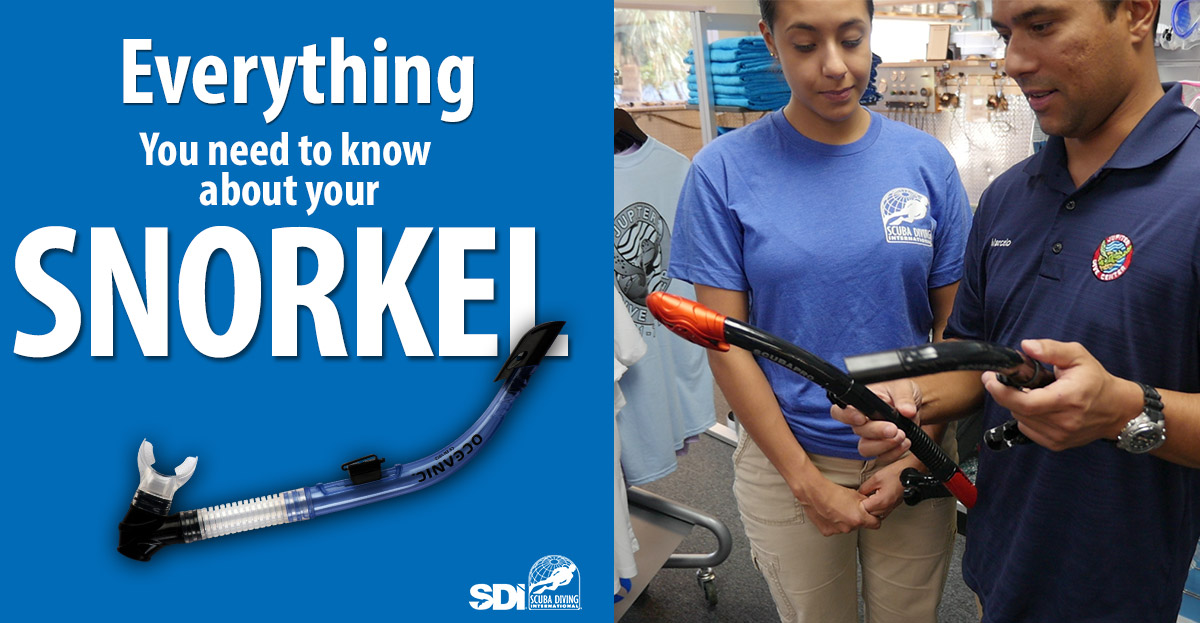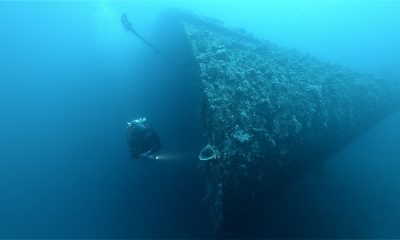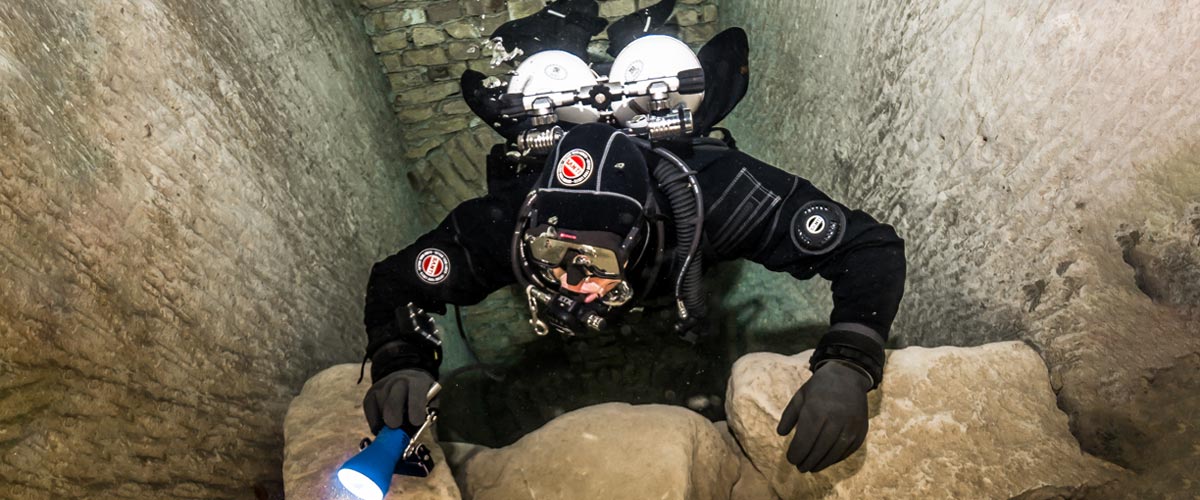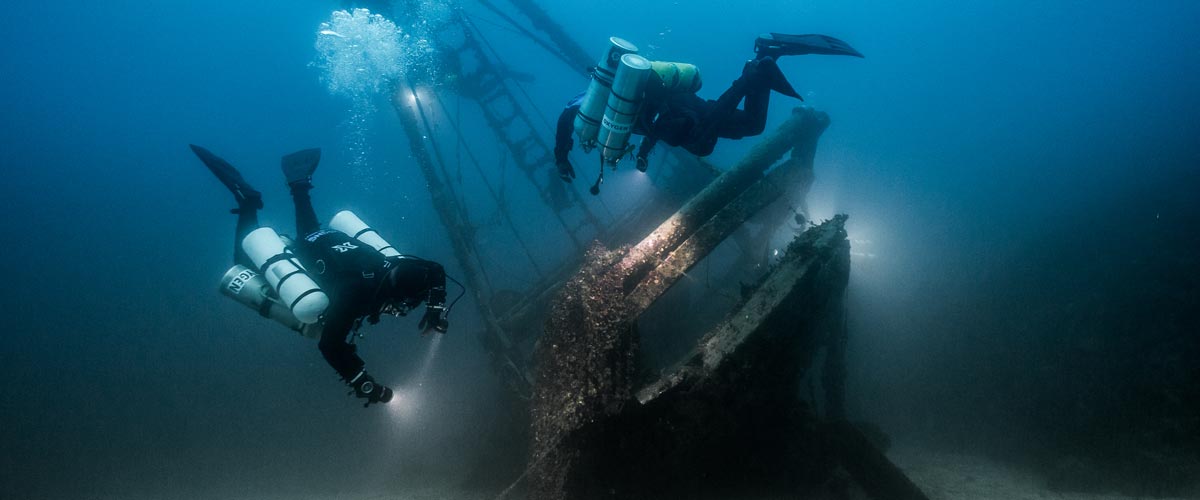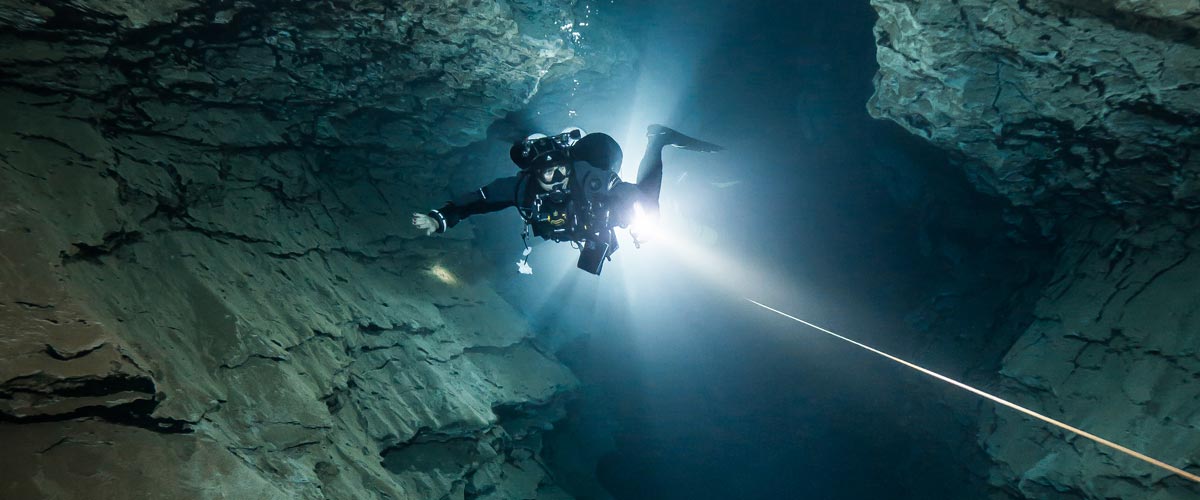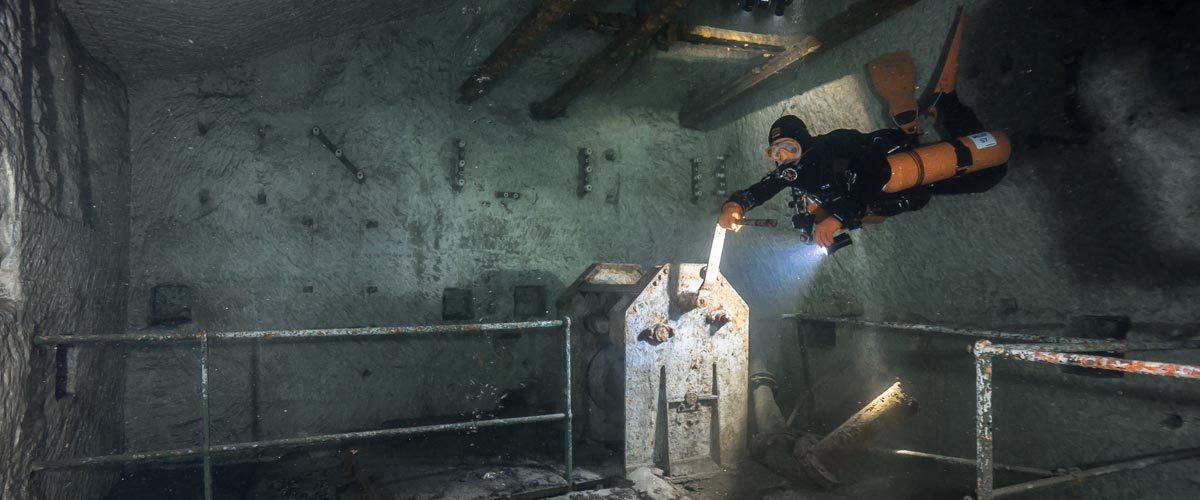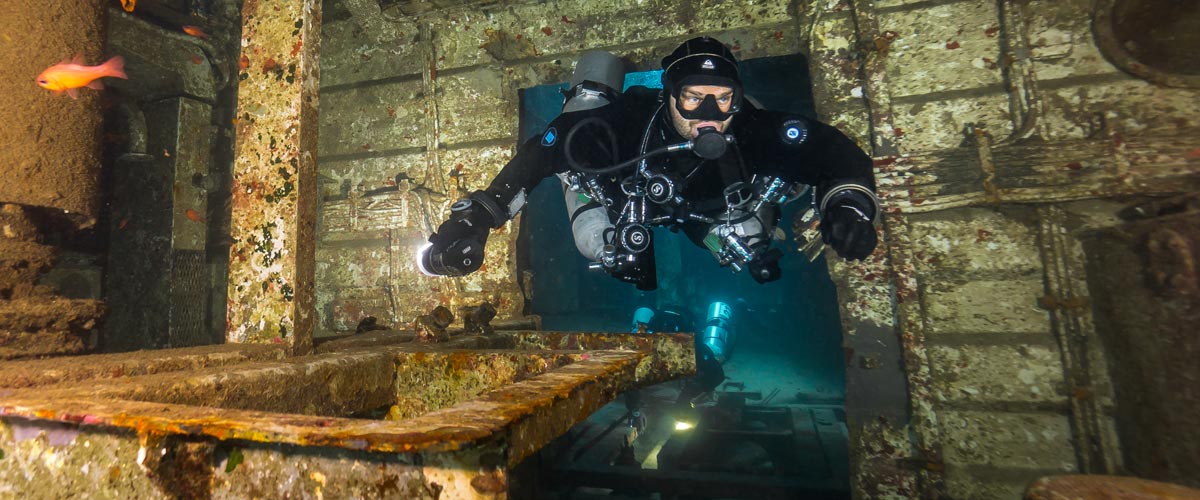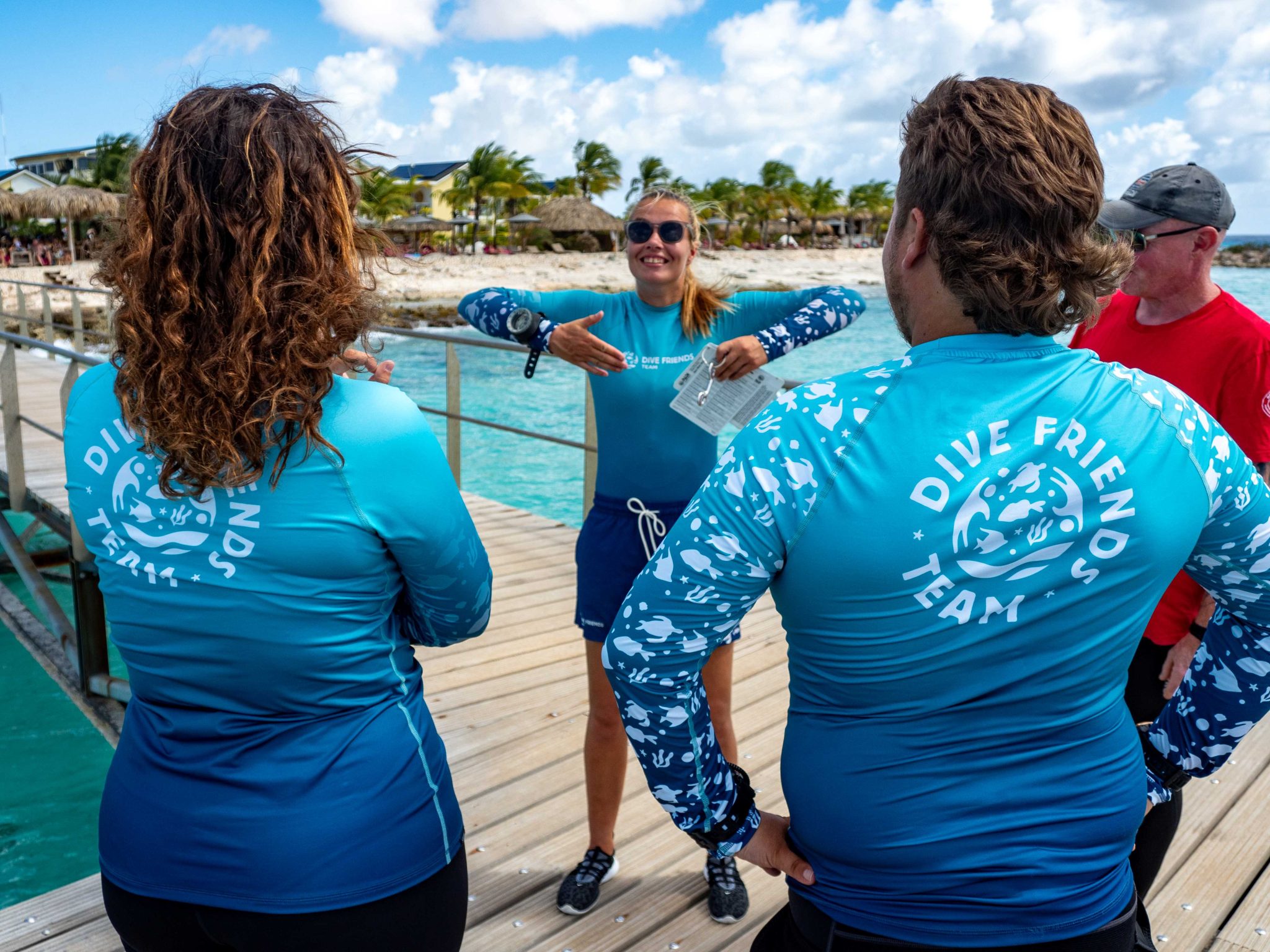The best snorkel can depend on whether you are:
- Snorkeling
- Scuba diving
- Freediving
Let’s take a look at how these needs may differ.
1. Snorkels for snorkelers
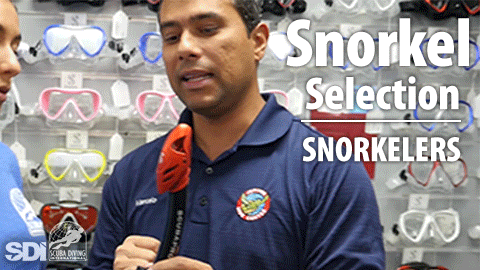 People who use snorkels primarily for snorkeling can have very different needs than scuba divers and freedivers. Specifically:
People who use snorkels primarily for snorkeling can have very different needs than scuba divers and freedivers. Specifically:
- Snorkelers generally prefer ease of clearing. Unlike scuba divers and freedivers, most snorkelers are self-taught. Thus, they most likely will not have had the benefit of someone teaching
them the most effective ways to clear a snorkel.
- Self-draining mouthpieces help make it easier to clear. A self-draining mouthpiece can reduce the amount of water that gets into a snorkel by half or more. Most snorkelers find this helpful.
- Most snorkelers also prefer devices that reduce or prevent water from entering at the top. These devices can make a snorkel either semi-dry or fully dry. A snorkeler who does not have to give a lot of thought to clearing a snorkel is generally a happy snorkeler.
Snorkelers will also want features such as a comfortable mouthpiece and a large bore; however, these are features every snorkel user will want.
2. Snorkels for scuba divers
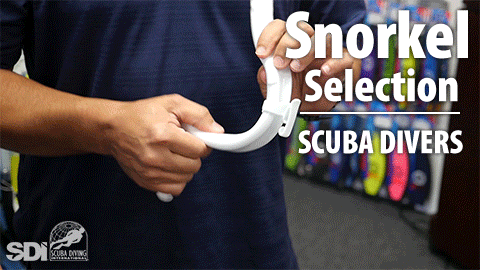 The first snorkel most divers purchase may, in fact, not be the one that can best meet their needs..
The first snorkel most divers purchase may, in fact, not be the one that can best meet their needs..
- Most divers start out with a snorkel similar to what snorklers use, but may abandon it if they discover that, where they dive, snorkels have little practical use. There are also some very real down sides to having a snorkel attached to your mask if it is not needed, such as distraction, drag, potential entanglement and the fact divers often confuse their snorkel for their BC inflator.
- At some dive sites, though, snorkels are helpful — and you never know when you might want one if stranded at the surface. In other words, it’s better to have one and not need it, than to need one and not have it.
- A small, folding or collapsible snorkel, stowed in a pocket, lets you have a snorkel with you at all times without incurring the problems inherent with always having one attached to your mask.. Collapsible snorkels may have the further benefit of costing less, meaning that the money saved can be applied toward items you use all the time, such as better-quality fins and a personal dive computer.
Most folding or collapsible models also make excellent freediving snorkels.
3. Snorkels for freedivers
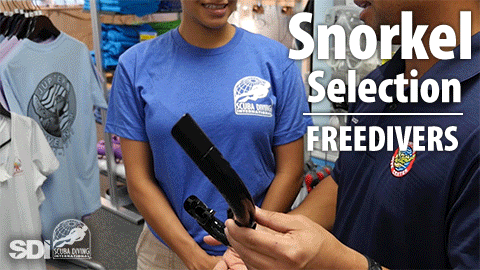 Freedivers have some very specific needs when it comes to snorkels and will seldom settle for anything less.
Freedivers have some very specific needs when it comes to snorkels and will seldom settle for anything less.
- Freedivers overwhelmingly choose simplicity and streamlining over bulk and drag. In freediving, efficiency is key. Therefore, anything that creates unnecessary drag won’t be of much use.
- Freedivers prefer open-top snorkels and consider anything else unnecessary. They rely primarily on displacement snorkel clearing, making snorkel-tip gadgetry unnecessary.
- No self-draining mouthpieces as they prevent displacement cleaning. These days, such snorkels are harder to find — but worth the search.
As mentioned earlier, collapsible snorkels generally make good freediving snorkels and have the added benefit of being more readily available than rigid snorkels with these features.
What to remember
When choosing a snorkel, keep these three things in mind:
- Snorkelers generally want a large-bore snorkel with a self-draining mouthpiece and some sort of device that reduces or eliminates water entering when submerged.
- Rather than go without a snorkel, scuba divers can keep a small, collapsable snorkel in their pocket.
- Freedivers will want a simple, streamlined snorkel with no self-draining mouthpiece and an open top.
Have additional questions about snorkels or snorkeling? Talk to the experienced professionals at your local SDI Dive Center. They will be able to help you.
[hr style=”single”]
To find out more about International Training, visit www.tdisdi.com.


